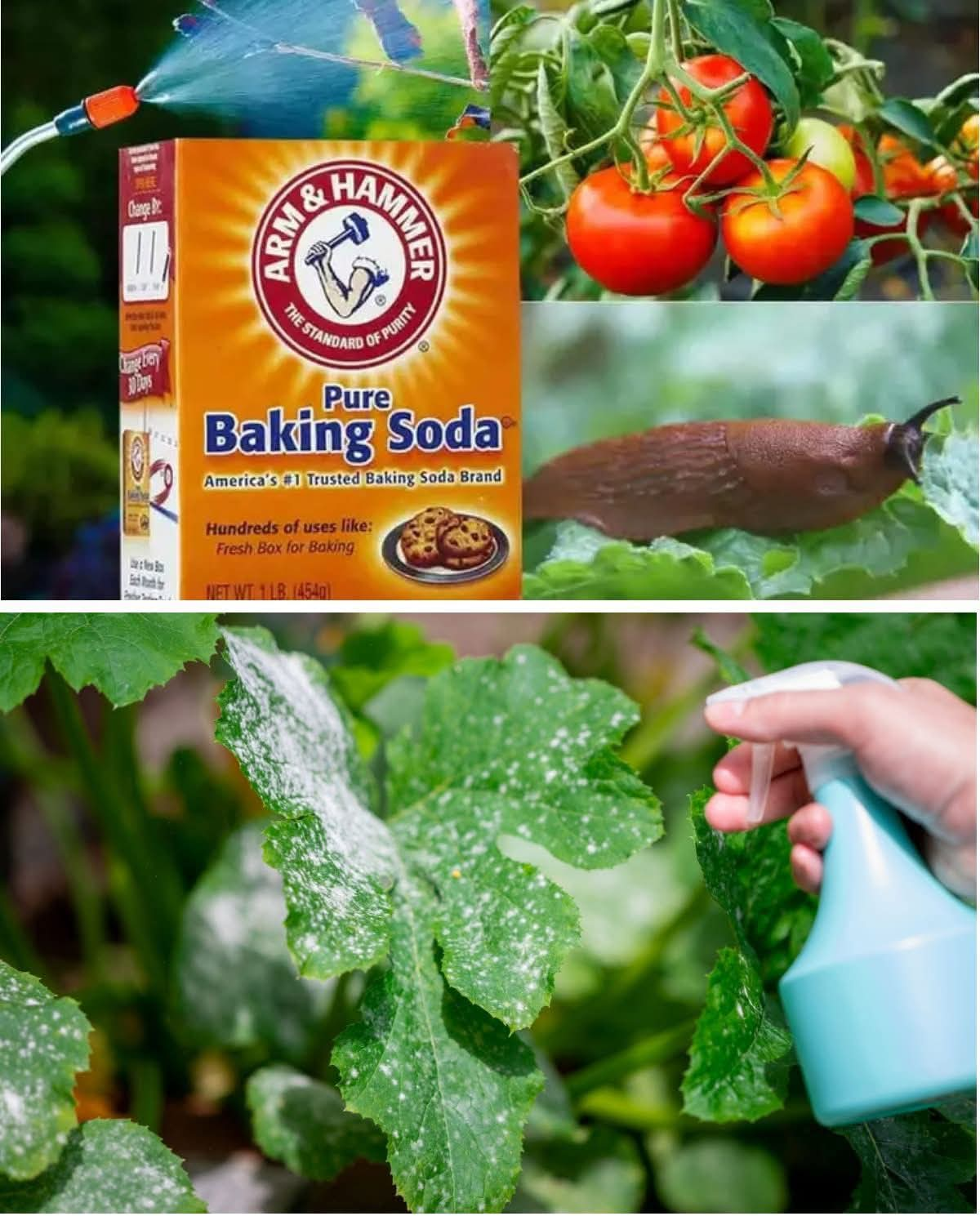Certainly! Here’s a seamless version of your requested content on “Baking Soda Is a Gardener’s Best Friend”, with all section titles and line breaks removed for a continuous, natural flow:
Baking soda, also known as sodium bicarbonate, is a versatile, eco-friendly staple found in nearly every household. While commonly used for cleaning and cooking, its hidden potential shines brightest in the garden. Gardeners around the world have discovered baking soda as an essential, natural tool for enhancing plant health, deterring pests, and managing fungal diseases without harsh chemicals. Its popularity among green-thumbed enthusiasts is rooted in both its effectiveness and its accessibility.
The use of baking soda dates back thousands of years. Ancient civilizations, including the Egyptians, employed a naturally occurring form of sodium bicarbonate called natron for preservation and cleaning. Over generations, this mineral found its way into gardens as a remedy for plant diseases and a means of maintaining soil health. In modern times, organic gardeners and environmental advocates embrace baking soda not only for its utility but for its alignment with sustainable, non-toxic living. In cultures that prioritize natural harmony with the earth, baking soda is a cherished ally.
To make a basic garden spray, you’ll need 1 tablespoon of baking soda, 1 teaspoon of mild liquid soap such as Castile soap, and 1 tablespoon of vegetable oil or neem oil, all mixed into 1 gallon of water. This simple formula can be scaled up or down depending on garden size. These ingredients work together to deter pests, minimize fungal growth, and support overall plant vitality in an inexpensive, safe way.
Optional additions to enhance your baking soda spray include a few drops of peppermint or eucalyptus essential oil for added insect repelling power, ½ teaspoon of cayenne pepper to further deter pests, a small splash of vinegar for acid-loving plants, or a tablespoon of milk or diluted yogurt to combat powdery mildew. These natural boosters can be tailored to your garden’s specific needs and challenges.
To ensure success, always start by testing your spray on a small portion of a plant to make sure there are no adverse reactions. Apply the mixture during cooler times of the day—early morning or late afternoon—to avoid leaf burn. Avoid spraying on very young or delicate seedlings. Reapply weekly, or more often after heavy rains, and store unused mixture in a cool, dark place. Shake well before each use to ensure all ingredients are evenly distributed.
Preparing and using this solution is simple. Mix the baking soda and soap in a small bowl, then stir in the oil. Pour the mixture into a clean spray bottle or garden sprayer, add the water, and shake vigorously. Spray directly onto plant leaves, especially the undersides where pests tend to gather. Repeat weekly or after rain for best results.
The final solution is a clear, gentle spray with a slightly soapy texture and mild scent, depending on optional additions. Once applied, it forms a protective layer on plant surfaces, disrupting the environment that fungi and insects thrive in. The effect is a visibly healthier garden with vibrant leaves and reduced signs of distress.
While baking soda doesn’t provide nutritional value in the traditional sense, it supports plant health by moderating pH levels, deterring unwanted insects, and controlling fungal issues. Its indirect benefit is a thriving, stress-free plant that requires fewer chemical interventions and grows more vigorously in balanced soil conditions.
Baking soda proves itself to be a natural, affordable powerhouse in the gardener’s toolkit. Its ability to prevent common plant issues, combined with its safe and natural profile, makes it a reliable solution for gardeners of all experience levels. When used thoughtfully, it delivers long-term benefits without environmental harm.
It is highly recommended for gardeners seeking natural, cost-effective methods for maintaining plant health. It serves as a trusted companion alongside composting, mulching, and crop rotation. Whether you are cultivating vegetables, flowers, or houseplants, baking soda offers practical advantages with minimal risk.
Embracing baking soda in your gardening practice is a step toward mindful, healthful living. It reflects a dedication to protecting both your plants and the environment. Choosing such a simple yet effective ingredient promotes wellness, sustainability, and harmony with nature—an indulgence not of luxury, but of conscious care for the world around you.
